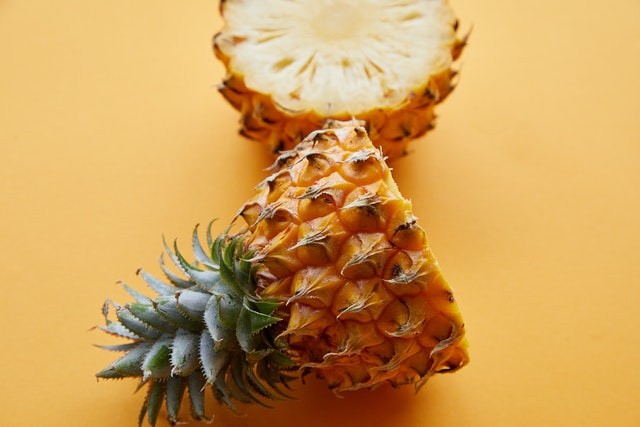All people are focused on the reason sweet, refreshing pineapple filled with vitamin C, vitamin B, manganese, and other beneficial compounds, burns the mouths as they try to enjoy the fruit.
Karen Schaich, a food scientist, and professor at Rutgers University, explains the basic chemistry behind the reason this fruit causes the mouth so much burning pain, an INVERSE report specified.
The food scientist said pineapples could taste the way they look, prickly. Indeed, the prickly sensation comes from a substance in fresh pineapple that's eroding mucous membranes in the mouth.
The said substance is called bromelain, as explained in a Healthline report. Proteases are a specific type of enzyme that facilitates chemical reactions in the body by breaking down particular proteins.

Bromelain in Fruits
Bromelain, which resides in certain fruits like papaya, figs, and pineapple, breaks down proteins known as cysteine amino acids.
The fruit itself, stems, leaves, and peel are in each part of the pineapple. While it is concentrated in the fruit compared to other parts like the stem, bromelain remains potent enough to act on the amino acids in the mouth.
Schaich explained that Bromelain starts breaking down the protein in the mucous linings of the mouth and on the tongue's surface.
Essentially, this mucous lining, Schaich continued explaining, is made of proteins that proteases are acting on. When the proteases break the proteins down, those tissue layers are degraded.
Pineapple as Meat Tenderizer
In addition to that, the expert also elaborated that pineapple is "reasonably acidic." Not only does bromelain break down the mucous linings, but the underlying tissues are also now exposed to the acid of the pineapples.
Bromelain has its benefits in food science, predominantly as a meat tenderizer. In fact, factories that can produce pineapple may use the leftover peels, leaves, and stems for meat tenderizers.
The bromelain is breaking down toughening cysteine proteins found in meat. Marinating meat using fresh pineapple juice does the same function.
Only fresh pineapples hurt people. Nonetheless, canned pineapples don't sting. Moreover, canned pineapple, similar to canned foods, is processed thermally to stop microorganisms from developing and growing in storage.
Salt Helps Lessen Bromelain Activity in Pineapple
According to food scientists, there is a study that dunking pineapple in saltwater solution with salt concentrations up to 1.5 percent, approximately one teaspoon of salt for every cup of water for 20 to 30 minutes reduced bromelain activity by 25 percent at most.
They added any higher concentration might impact the taste of the fruit. In addition, the salt may cause the structure of the bromelain to constrict.
Schaich also explained that salt lessens the "pH at which critic acid in pineapple dissociates. Salt makes it, so citric acid breaks down into simpler components.
An article published on the Eatingwell website suggests that salt stimulates bromelain; thus, it is inactive by the time it is ready to eat. Schaich claimed, though, that she could not find any scientific literature validating such a hypothesis.
Fortunately, the pain when eating pineapple is not too strong, and its fresh sweetness outweighs the sting.
Related information about the chemistry behind pineapple is shown on Abbey the Food Scientist's YouTube video below:
RELATED ARTICLE : Can't Keep Your Ice Cream Creamy? Newly Developed Plant-Based Nanocrystals Might Help Preserve Frozen Products
Check out more news and information on Food in Science Times.
© 2025 ScienceTimes.com All rights reserved. Do not reproduce without permission. The window to the world of Science Times.












